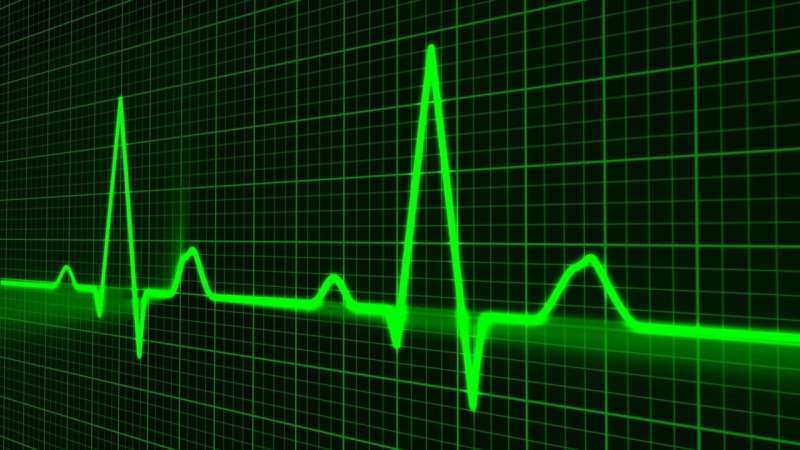This article has been reviewed according to Science X's editorial process and policies. Editors have highlighted the following attributes while ensuring the content's credibility:
fact-checked
trusted source
proofread
Atrial fibrillation estimated to be three times more common than previously thought

Atrial fibrillation, a rapid, irregular heart beat that can lead to stroke or sudden death, is three times more common than previously thought, affecting nearly 5% of the population, or 10.5 million U.S. adults, according to new estimates from UC San Francisco.
A-Fib, as the condition is commonly known, has been on the rise for at least the past decade, driven by the aging of the population, along with increasing rates of hypertension, diabetes and obesity. Earlier projections had estimated that 3.3 million U.S. adults had atrial fibrillation, but these have not been updated in more than two decades.
The study appears Sept. 11 in JACC.
"Atrial fibrillation doubles the risk of mortality, is one of the most common causes of stroke, increases risks of heart failure, myocardial infarction, chronic kidney disease and dementia, and results in lower quality of life," said first author Jean Jacques Noubiap, MD, Ph.D., a postdoctoral scholar at UCSF with a specialty in global cardiovascular health.
"Fortunately, atrial fibrillation is preventable, and early detection and appropriate treatment can substantially reduce its adverse outcomes," he said.
Rising numbers reflect the need for better prevention and treatment
UCSF investigators reviewed the medical records of nearly 30 million adult patients who received some form of acute or procedural care in California from 2005 to 2019. About 2 million of these people had been diagnosed with A-Fib, and the numbers grew over time, rising from 4.49% of the patients treated between 2005 and 2009 to 6.82% of the patients treated between 2015 and 2019.
The data were standardized to reflect the entire country, and researchers estimated the current national prevalence to be at least 10.55 million. They also found that during the study timeframe, A-Fib patients skewed younger, were less likely to be female and more likely to have hypertension and diabetes.
A-Fib has a broad spectrum of complications from shortness of breath and light-headedness to blood clots, stroke and even heart failure. Studies have shown that people with A-Fib are up to five-times more likely to have a stroke. The authors said that by outlining the scope of the problem, these new estimates can help guide health care planning, resource allocation and public health interventions.
"Physicians recognize that atrial fibrillation is often encountered in essentially every field of practice," said senior and corresponding author Gregory M. Marcus, MD, MAS, a cardiologist and electrophysiologist at UCSF Health. "These data provide objective evidence to demonstrate that prior projections severely underestimated how common it truly is."
Digital technologies may reveal it is even more common than the current analysis indicates.
"With the growing use of consumer wearables designed to detect atrial fibrillation combined with safer and more effective means to treat it, this current prevalence of atrial fibrillation in health care settings may soon be dwarfed by future health care utilization that will occur due to the disease," Marcus said.
The other authors are Janet J. Tang, Ph.D., MPH; Justin T. Teraoka; and Thomas A. Dewland, MD, all of UCSF's Division of Cardiology.
More information: JACC (2024). www.jacc.org/doi/10.1016/j.jacc.2024.07.014




















